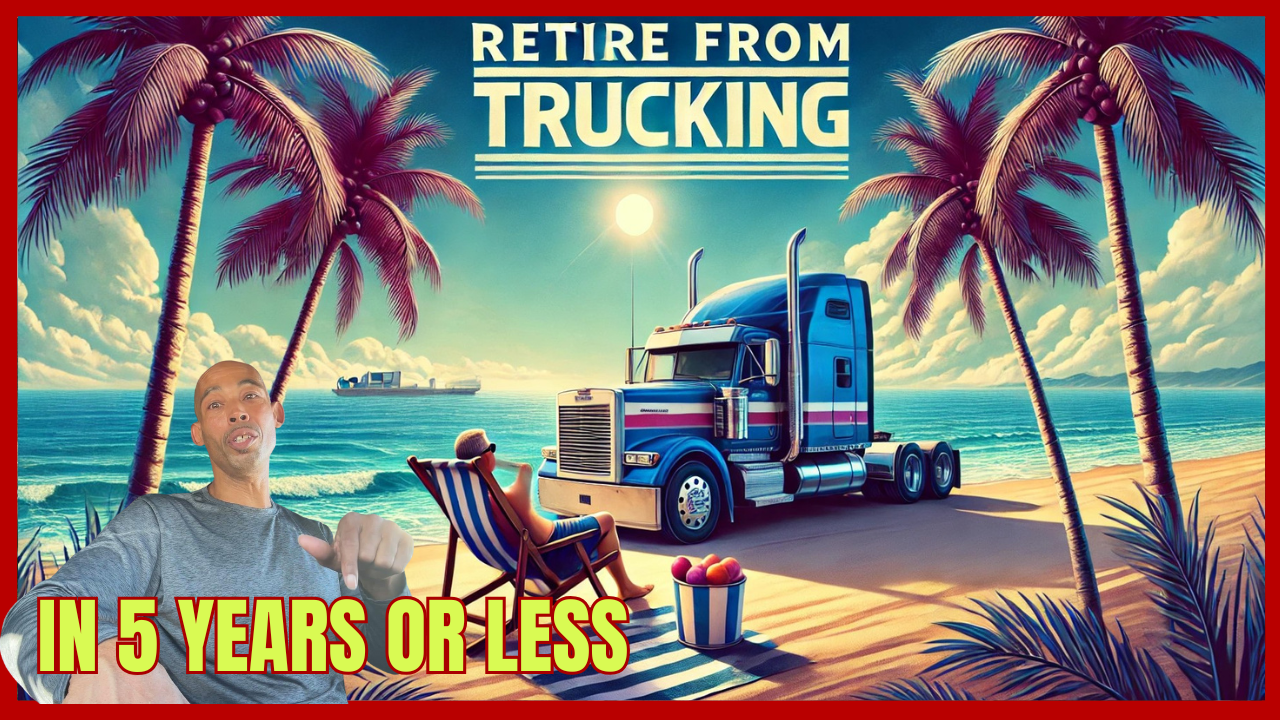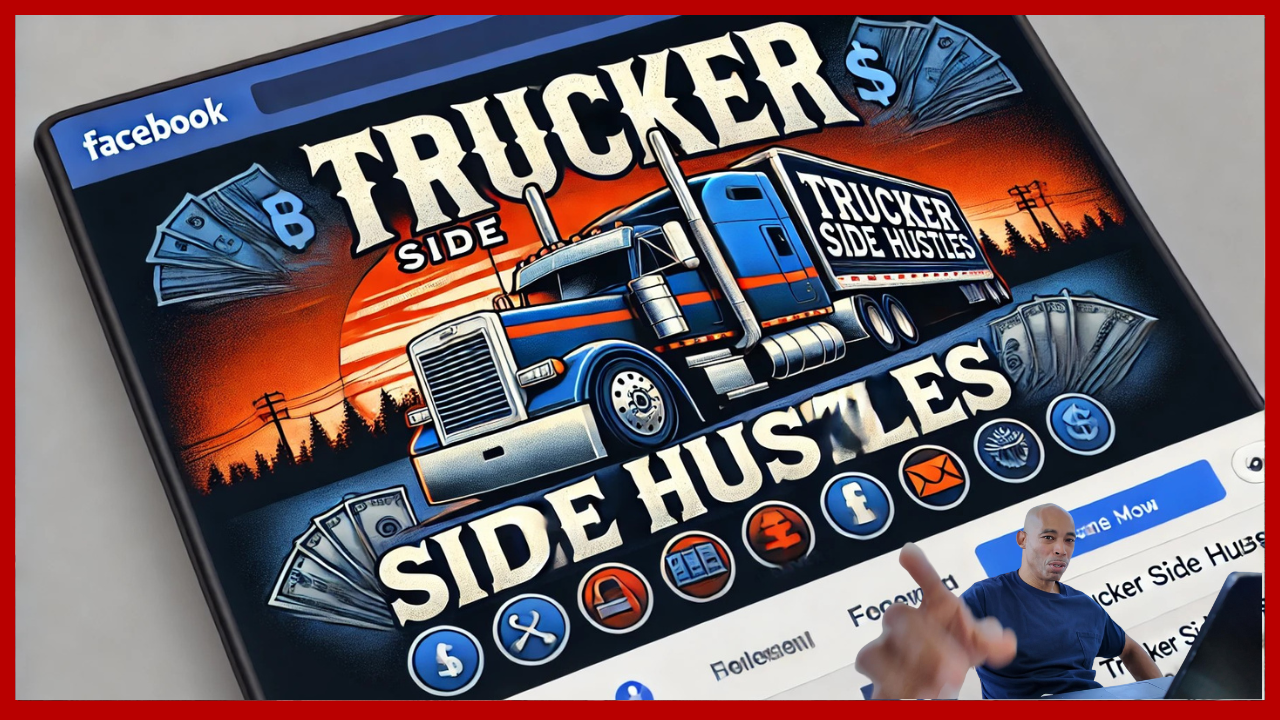Critical Maintenance Tips Every New Truck Driver Should Master (Unless You Love Breakdowns)
by TRUCKERS VA
(UNITED STATES)

Mistakes Happen. Learn Before They Cost You.
🚛 Introduction:
You can drive like a pro, but if your truck’s leaking, squeaking, or blowing smoke like it’s in a monster movie, you ain’t going far.
And once that truck is parked on the side of the highway with a blown tire, busted belt, or seized engine… you’re not a driver anymore.
You’re just another guy waiting on a tow, burning up drive time, money, and credibility with dispatch.
So if you’re new to trucking and want to make money, stay safe, and earn respect—master these critical maintenance basics before you find out the hard way.
🔑 Key Points:
1. Pre-Trips Aren’t Optional — They’re Life Insurance
Don’t treat pre-trips like a box to check. They’re your first line of defense against roadside disaster.
What to check every single day:
Tire pressure and condition (look for flats, bulges, and uneven wear)
Oil, coolant, and other fluid levels
Hoses, belts, and visible leaks
Lights, reflectors, and brake functions
Air system pressure and leaks (especially in colder weather)
It takes 10–15 minutes. Miss one bad tire or cracked airline, and it could cost you thousands—or worse.
2. Tires Are Not “Set It and Forget It”
Tires are your rolling foundation—and they’re expensive.
Check PSI regularly. Underinflated tires build heat and wear fast. Overinflated ones ride rough and pop easier.
Watch for cupping, shoulder wear, or uneven tread. That’s your truck whispering “alignment issues” or “suspension problems.”
Ignore that, and you’ll be sitting at a Petro watching your bank account cry while they swap $2,000 worth of rubber.
3. Know Your Fluids Like You Know Your Fuel Gauge
Every new driver watches the fuel gauge like a hawk—but ignores oil and coolant like they’re decoration. Big mistake.
Engine oil keeps everything lubricated. Low oil = hot parts + major damage.
Coolant prevents overheating in summer and engine block cracks in winter.
Brake fluid and power steering fluid? Equally crucial.
Don’t just check levels—check color and consistency. If it’s black, milky, or smells burned… that’s your early warning sign.
4. Brakes Can Save You or Kill You
Air brakes are not like car brakes. You need to:
Drain air tanks daily (especially in cold climates)
Watch your air pressure gauge
Inspect brake chambers and slack adjusters
Check for air leaks—listen for hissing when parked
DOT inspectors love catching brake violations. So do mountain roads.
5. Clean = Maintained
You don’t have to be a neat freak, but a clean truck:
Keeps you proud and focused
Makes it easier to spot leaks and damage
Lowers the odds of DOT pulling you over
Keeps you from crawling around in mystery sludge during inspections
A dirty truck hides problems. A clean truck speaks volumes.
6. Listen to the Truck. It Talks.
Squeaks, rattles, clunks, growls—those aren’t part of the soundtrack.
They’re warnings.
A new squeal could be a loose belt.
A vibration might be a driveline issue.
A drop in MPG could mean a sensor failing or clogged fuel filters.
Learn what “normal” sounds like—so you’ll know when something’s not right.
🔄 Multiple Perspectives:
The Wise Rookie: “I caught a bad hub seal on my pre-trip. Fixed it in a shop before it leaked onto the brakes. Saved myself a ticket and a nightmare.”
The Hard-Lesson Learner: “Ignored my low coolant light. Ended up cracked head gasket and three weeks out of work.”
The Old-School Vet: “If you can’t walk around your truck and spot a problem, you shouldn’t be in it.”
🏭 Industry Reality Check:
Shop labor costs are rising—$150/hour+ in many places.
Parts are still backordered. Tows cost as much as a mortgage payment.
Even small issues become big delays in 2025. That’s money lost, loads missed, and sometimes, jobs gone.
Knowing maintenance basics protects your income. Simple as that.
🧾 Bottom Line:
You don’t need to be a diesel tech. But if you’re a truck driver who doesn’t know basic maintenance? You’re a rolling liability.
Take pride in your rig. Take time to learn how to spot problems early. Because an ounce of prevention in trucking is worth more than a load of gold when you’re on the road.
Keep it clean. Keep it tight. Keep it moving.
📣 Call to Action:
For more brutally honest trucking tips, check out 👉 lifeasatrucker.com.
Want to stop depending on freight for every dollar? Build your off-duty income now at 👉 truckersidehustle.com.
Because the only thing more important than truck maintenance… is life maintenance.
Let’s be real: most new truck drivers spend way too much time obsessing over shifting and GPS routes—and not nearly enough time learning how to keep their rig alive.
You can drive like a pro, but if your truck’s leaking, squeaking, or blowing smoke like it’s in a monster movie, you ain’t going far.
And once that truck is parked on the side of the highway with a blown tire, busted belt, or seized engine… you’re not a driver anymore.
You’re just another guy waiting on a tow, burning up drive time, money, and credibility with dispatch.
So if you’re new to trucking and want to make money, stay safe, and earn respect—master these critical maintenance basics before you find out the hard way.
🔑 Key Points:
1. Pre-Trips Aren’t Optional — They’re Life Insurance
Don’t treat pre-trips like a box to check. They’re your first line of defense against roadside disaster.
What to check every single day:
Tire pressure and condition (look for flats, bulges, and uneven wear)
Oil, coolant, and other fluid levels
Hoses, belts, and visible leaks
Lights, reflectors, and brake functions
Air system pressure and leaks (especially in colder weather)
It takes 10–15 minutes. Miss one bad tire or cracked airline, and it could cost you thousands—or worse.
2. Tires Are Not “Set It and Forget It”
Tires are your rolling foundation—and they’re expensive.
Check PSI regularly. Underinflated tires build heat and wear fast. Overinflated ones ride rough and pop easier.
Watch for cupping, shoulder wear, or uneven tread. That’s your truck whispering “alignment issues” or “suspension problems.”
Ignore that, and you’ll be sitting at a Petro watching your bank account cry while they swap $2,000 worth of rubber.
3. Know Your Fluids Like You Know Your Fuel Gauge
Every new driver watches the fuel gauge like a hawk—but ignores oil and coolant like they’re decoration. Big mistake.
Engine oil keeps everything lubricated. Low oil = hot parts + major damage.
Coolant prevents overheating in summer and engine block cracks in winter.
Brake fluid and power steering fluid? Equally crucial.
Don’t just check levels—check color and consistency. If it’s black, milky, or smells burned… that’s your early warning sign.
4. Brakes Can Save You or Kill You
Air brakes are not like car brakes. You need to:
Drain air tanks daily (especially in cold climates)
Watch your air pressure gauge
Inspect brake chambers and slack adjusters
Check for air leaks—listen for hissing when parked
DOT inspectors love catching brake violations. So do mountain roads.
5. Clean = Maintained
You don’t have to be a neat freak, but a clean truck:
Keeps you proud and focused
Makes it easier to spot leaks and damage
Lowers the odds of DOT pulling you over
Keeps you from crawling around in mystery sludge during inspections
A dirty truck hides problems. A clean truck speaks volumes.
6. Listen to the Truck. It Talks.
Squeaks, rattles, clunks, growls—those aren’t part of the soundtrack.
They’re warnings.
A new squeal could be a loose belt.
A vibration might be a driveline issue.
A drop in MPG could mean a sensor failing or clogged fuel filters.
Learn what “normal” sounds like—so you’ll know when something’s not right.
🔄 Multiple Perspectives:
The Wise Rookie: “I caught a bad hub seal on my pre-trip. Fixed it in a shop before it leaked onto the brakes. Saved myself a ticket and a nightmare.”
The Hard-Lesson Learner: “Ignored my low coolant light. Ended up cracked head gasket and three weeks out of work.”
The Old-School Vet: “If you can’t walk around your truck and spot a problem, you shouldn’t be in it.”
🏭 Industry Reality Check:
Shop labor costs are rising—$150/hour+ in many places.
Parts are still backordered. Tows cost as much as a mortgage payment.
Even small issues become big delays in 2025. That’s money lost, loads missed, and sometimes, jobs gone.
Knowing maintenance basics protects your income. Simple as that.
🧾 Bottom Line:
You don’t need to be a diesel tech. But if you’re a truck driver who doesn’t know basic maintenance? You’re a rolling liability.
Take pride in your rig. Take time to learn how to spot problems early. Because an ounce of prevention in trucking is worth more than a load of gold when you’re on the road.
Keep it clean. Keep it tight. Keep it moving.
📣 Call to Action:
For more brutally honest trucking tips, check out 👉 lifeasatrucker.com.
Want to stop depending on freight for every dollar? Build your off-duty income now at 👉 truckersidehustle.com.
Because the only thing more important than truck maintenance… is life maintenance.












